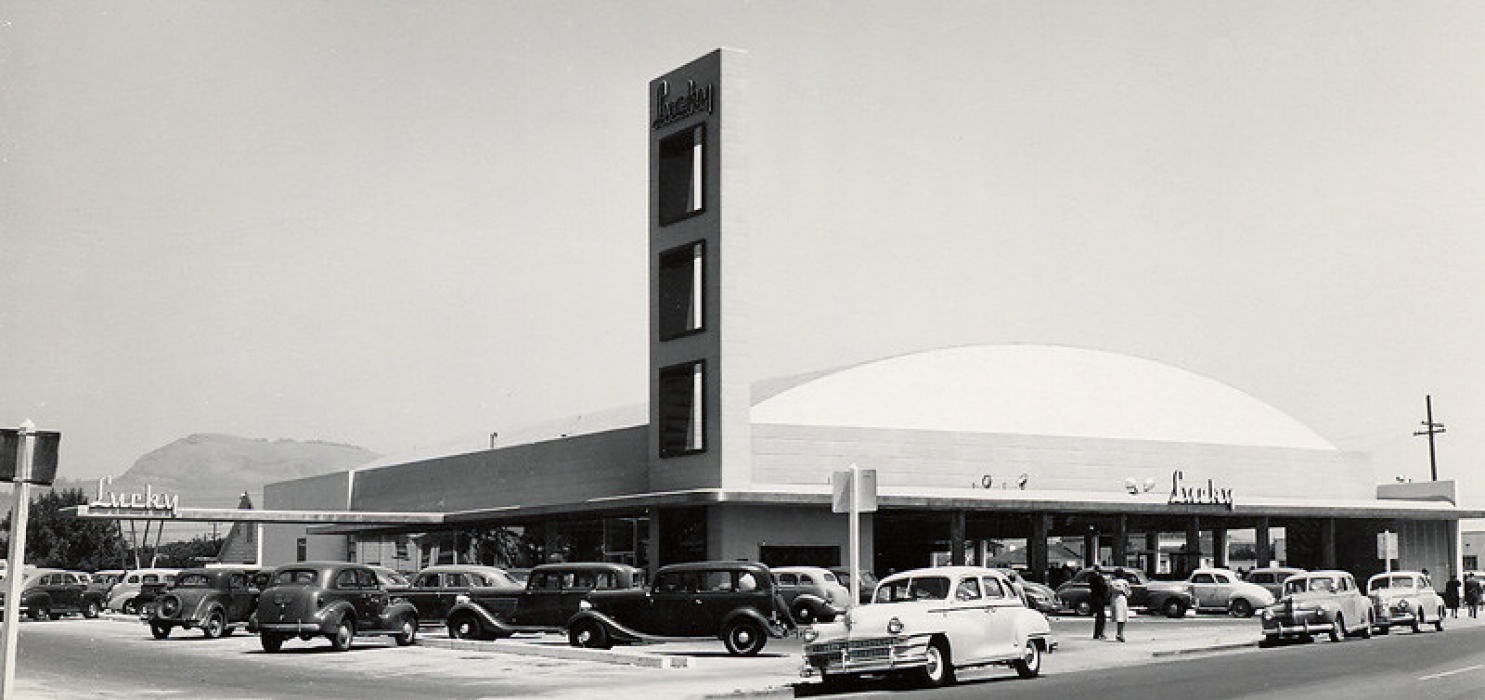In Hughes v. Superior Court of California, 339 U.S. 470 (1950), the Supreme Court decided that a California court injunction against employees picketing to pressure stores to hire on a racial basis did not violate the freedom of speech protected by the First and Fourteenth Amendments. The case provides an early view of Supreme Court thinking on picketing and racial quotas.
Picketers tried to pressure stores to hire more African Americans
Hughes and other members of the Progressive Citizens of America had been picketing in front of Lucky Stores, Inc. in Richmond, California, to pressure the stores to hire a proportion of African Americans equal to the percentage of black customers, then about 50 percent. A California court cited the picketers for contempt for violating the injunction that had been issued against them.
Supreme Court said injunction against picketers
Justice Felix Frankfurter, who had coauthored a book on labor injunctions prior to becoming a Supreme Court justice, wrote the decision for an 8-0 Court (Justice William O. Douglas did not participate) upholding the lower court ruling. Writing prior to the Court’s historic desegregation decision in Brown v. Board of Education (1954), Frankfurter first noted that California had been sensitive to discrimination in employment and had sought to prohibit racial quotas, which might exacerbate “community tensions and conflicts.” Second, citing Bakery and Pastry Drivers and Helpers Local v. Wohl (1942), he observed that while the Court had used the Fourteenth Amendment to protect freedom of speech against state abridgements, picketing was “more than free speech, since it involves patrol of a particular locality and since the very presence of a picket line may induce action of one kind or another, quite irrespective of the nature of the ideas which are being disseminated.”
Court said picketing was not the equivalent of First Amendment-protected speech
Third, Frankfurter argued that in previous cases “the specific situations have controlled decision. It has been amply recognized that picketing, not being the equivalent of speech as a matter of fact, is not its inevitable legal equivalent.” Applying reasoning counter to current precedents prohibiting viewpoint discrimination, Frankfurter cited the California court argument that there might be “a distinction between picketing to promote discrimination, as here, and picketing against discrimination.”
Fourth, he ruled that it was irrelevant that the California policy had been “expressed by the judicial organ of the State rather than by the legislature.” The Court should recognize that “the policy of a State may rely for the common good on the free play of conflicting interests and leave conduct unregulated” or “may deem it wiser policy to regulate.”
Concurring justices said state law prohibited race discrimination
Justices Hugo L. Black and Sherman Minton concurred, citing Giboney v. Empire Storage and Ice Co. (1949). Justice Stanley F. Reed cited the same case and concurred on the rationale that state law prohibited discrimination on the basis of race.

